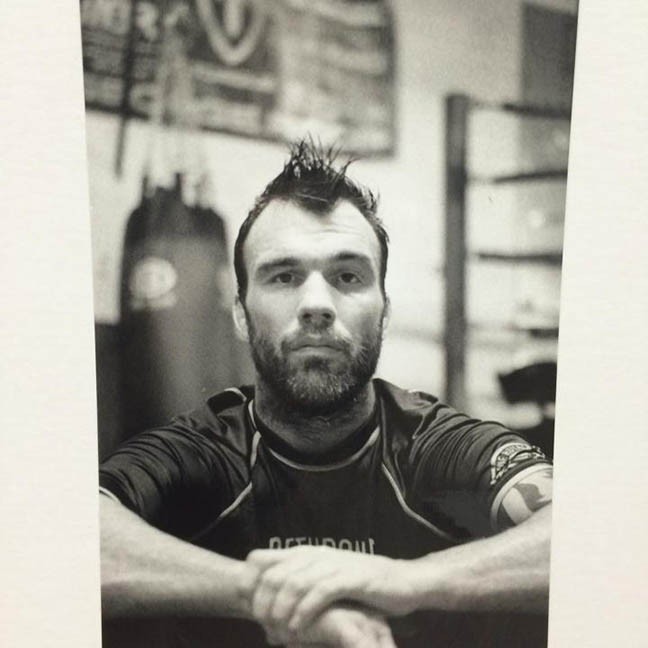George Roop approaches growing cannabis like he approached mixed martial arts.
"I was never the best athlete," he said. "I was never the fastest or the strongest. But I fought some of the very best guys in the world, and the only reason I was able to do that was the work ethic I brought."
For 10 years Roop would wake up at 4 a.m. and hit the gym to stay competitive in the Ultimate Fighting Championship, World Extreme Cagefighting and Arizona's own Rage in the Cage. He used cannabis for pain management to avoid pharmaceuticals.
Though Roop had mixed success in his MMA career, he's hoping his philosophy will fare better in the cannabusiness.
Now, at 37, Roop wakes up at 4 a.m. and preps emails before heading out to a 2-hour site visit of his new 16-acre cannabis cultivation facility in southeast Tucson he's calling the Tucson Cannabis Campus.
The rest of the day he works to set up his business, writing standard operating procedures, company policies and learning how to navigate the construction process.
Roop, also a patient, has kept a low profile as a cultivation director since the program's inception in 2012 but has been growing cannabis for the past 18 years. Most recently, he oversaw cultivation for Downtown Dispensary in Tucson, but has also consulted for grows around the state.
The new facility, set to open April 2019, will be state-of-the-art, Roop said, featuring all the latest technology in sustainable cultivation packed into a high-tech 40,000-square-foot operation capable of growing 100 pounds of cannabis every five-to-seven days.
It'll operate under the Prime Leaf's dispensary license.
"This isn't a warehouse that we're retrofitting," he said. "Our facilities are specifically designed for cannabis cultivation."
In addition to customized HVAC filtration and a "panel system" that can sterilize each cultivation room, Roop's cannabis campus will feature on-site water treatment, rain water harvesting, a gray water system, solar panels and use natural gas, which decreases their carbon footprint 40 percent, he said.
Combine that with a reputation to uphold, and you get Roop's "craft cannabis."
"I hold myself to a higher standard than anyone I know," he said. "If I don't like the way the product looks, I won't even put it out to a consumer because I believe in reputation."
Roop has spent his years cross-breeding plants for selective traits, a process he calls "pheno-hunting," focusing on the full profile of cannabinoids and terpenes. He keeps these strains in a "genetic library," ready for cloning and mass production at a moment's notice.
Roop believes the intent in engineering will help reduce risks of mold and bacteria, but the secret to growing clean cannabis is a lot simpler than that.
He has a warning for his cultivation technicians if they were hoping for a glamorous job: "Look, you don't really grow cannabis. You grow cannabis maybe 20 percent of your job. The other 80 percent you're a janitor."
Keeping the facility clean is the top priority for reducing contamination, Roop said.
Roop's new facility is a family business funded by his uncle, Chuck Jensen, who was owner and president of Diversified Technologies Solutions, a radioactive waste management company that merged with AVANTech, Inc. in 2014, where Jensen served as executive vice president before retiring shortly after.
Roop and his family first started planning the venture two years ago, and he says it's a humbling experience to be entrusted with the business.
"There's only one thing I'm successful at right now and that's spending millions of dollars," he said. "There's a million more actions that have to be followed through with to make this venture successful for not only my family, but the community as well."
Roop has put hundreds of hours into studying how to run his business. Besides his grower's acumen, he's had to learn how to apply for permits with the city, draft project proposals and hire contractors on the fly.
So far, news of Roop's new site, which sits near a Tucson neighborhood of tract housing, has warranted mixed reactions from his neighbors. Some nearby residents have raised concerns about potential odor or increased criminal activity.
But Roop said he's made himself accessible through email and is confident they'll come around when they see what he has to offer.
He understands being a bad neighbor is bad for business, he said.
"We both care about the community a tremendous amount," he said. "We both care about the youth a tremendous amount, and I think those are positive things to take in."










